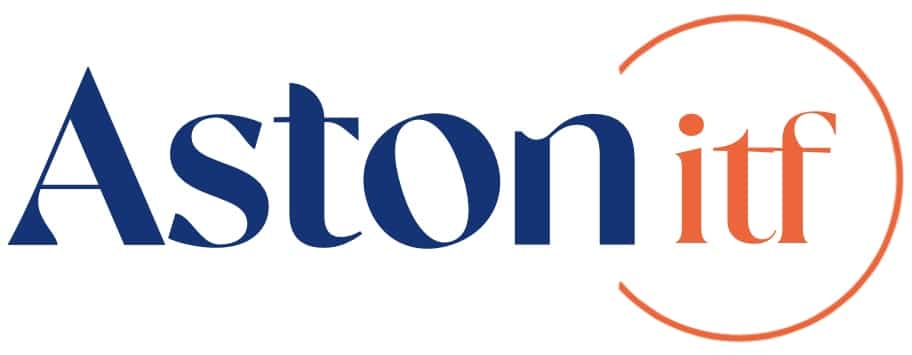
Collection software, find the one you need!

Receivables settlement and cash flow is a highly topical issue. Customers are slow to pay their bills: payment times are getting longer. Collecting unpaid bills is often difficult. Some companies even go out of business. According to the BPCE Observatory, an average of 75,000 businesses close every year: 60,000 VSEs and 15,000 SMEs disappear in France. Today, collecting customer debts is a priority, which is why you need to choose the right collection software.
The question of reducing payment times andprotecting against non-payment is therefore more topical than ever. Anxious managers, with their eyes riveted on the company’s bank account, nevertheless have solutions to anticipate the risk of non-payment and improve their cash flow.
Debt settlement: what you need to know
The DGCCRF (Direction Générale de la Concurrence, de la Consommation et de la Répression des Fraudes) defines debt collection as follows: The collection of customer debts is a regulated activity which consists of using dialogue to obtain payment from a debtor.
Once this notion of dialogue has been introduced, the regulations authorize the creditor to follow various procedures in order to recover the money owed to him by his customer. Let’s see which ones.
Customer collection procedures
Forced collection or judicial collection
The company decides to take legal action to recover the debt from the customer. The courts then order the payment of debts to the non-paying customer via a forced collection procedure, also known as judicial collection.
- An injunction to pay is a legal procedure that can be handled by a bailiff.
- A court-ordered summons to pay is another procedure that takes longer and costs more than an injunction to pay, but is still recommended when the debtor contests the demand for payment.
- Attachment is another procedure designed to prevent debtors from organizing their insolvency.
The claim must be lodged with the appropriate court , either the commercial court clerk’s office or the district court, before the end of the applicable limitation period. This is required, for example, when the sums due are derived from a promissory bill, or a contract for the provision of services.
Amicable collection
The amicable collection procedure involves the company opting for dialogue with its customer.
This approach offers the following advantages:
- maintaining business relations,
- saving a lengthy legal procedure,
- faster payment (in theory).
The procedure for the amicable collection of debts on behalf of third parties is different. The company then calls in a debt collection expert, who takes over the debt.
The activities of companies specializing in the amicable collection of debts are regulated. The company must therefore call on the services of an authorized collection agency, a bailiff or an authorized collection agent.
If the customer is experiencing temporary difficulties, it is advisable, for example, to offer to collect an initial down-payment associated with a due date, and then spread out subsequent payments over time.
Conditions for amicable collection
A company wishing to initiate an amicable collection approach with its customer must send a formal demand letter to the debtor.
To be admissible, this letter must contain the following information:
- name and contact details of the company issuing the letter (the creditor), the company with debts (the debtor) and the amicable debt collection company,
- detailed reminder of the nature of the services provided,
- amount due including interest,
- procedure for settling the claim,
- a statement that the creditor will bear the costs of collection (with the exception of NSF cheques, decided by law).
If the customer agrees to pay, the collection company will issue a receipt for payment.
Using a bailiff
In the first instance, bailiffs apply and carry out acts defined by court decisions, such as enforced debt collection or judicial debt recovery.
A company can also call on a bailiff to start an amicable debt collection procedureon behalf of third parties.
Advantages of using a bailiff :
- most debtors never contradict a ministerial officer, which often speeds up settlements,
- the bailiff is not bound by the terms of the letter of formal notice,
- the bailiff can issue a writ of execution for debts not exceeding €4,000: this solution simplifies the payment procedure for all parties.
What happens when a customer does not pay his debts even though he has accepted the terms of the writ of execution? The creditor can then ask another bailiff to automatically initiate a forced collection procedure: no judge’s decision is necessary!
Does the debtor have to pay collection costs?
The law on collection is strict on this point: the creditor and/or the agent are strictly forbidden to charge collection fees to the debtor for late payment or non-payment. It’s not a right!
Charging collection fees to a debtor is punishable by 2 years’ imprisonment and a €300,000 fine. The only exceptions authorizing the debtor alone (never the agent) to invoice the debtor for collection costs are those defined by court decisions.
Some examples – For a deed ordering payment:
- insurance premium, rental,
- following a proven finding of bad faith on the part of the debtor,
- payment following an NSF cheque,
- a claim for which both parties are professionals, with a fixed indemnity of €40.
For these reasons, we recommend that you include interest on arrears in your contract, calculated at the current legal interest rate.
Debt collection platforms
If good accounts make good friends, they also forge lasting and prosperous bonds, don’t they? Here we present some of the most reputable secure online collection platforms on the market, enabling you to maintain these links.
Aston iTF Cash Collection
is asoftware as a service ( SaaS) credit management and collections solution. The software is used internally by account managers, accountants and/or credit managers in SMEs, ETIs, major accounts and multinationals. ASTON iTF is a Fintech that capitalizes on Cloud, Big Data and AI technologies.
The platform’s objective is to enable users to get rid of time-consuming administrative tasks that add no value, so that they can concentrate on handling disputes and difficult customers or those with payment difficulties.
By automating 80% of tasks, the credit manager can reduce overdue receivables by 50%, speed up the collection of trade receivables, and improve the quality of his work.
accelerate collection of trade receivables,
reduce financial risk, and preserve and maximize the company’s cash flow.
The platform offers many other advantages for reducing DSO(days sales outstanding ) and optimizing WCR (working capital requirement):
- intelligent automation of collection actions,
- dashboards with customized indicators simplifyanalysis of collectionperformance , and help identify receivables that need to be prioritized,
- behavioral scoring based on customers’ payment habits is analyzed in real time, enablingrisk anticipation
Good to know:
- immediately available online, 1-month free trial at no cost or obligation.
- This collection software offers perfect interoperability with accounting systems (SAP, Sage, Cegid, etc.). It is also available as a simple excel file
- No more it integration, no more set-up delays!
To read the rest of the Appvizer article, click here .










